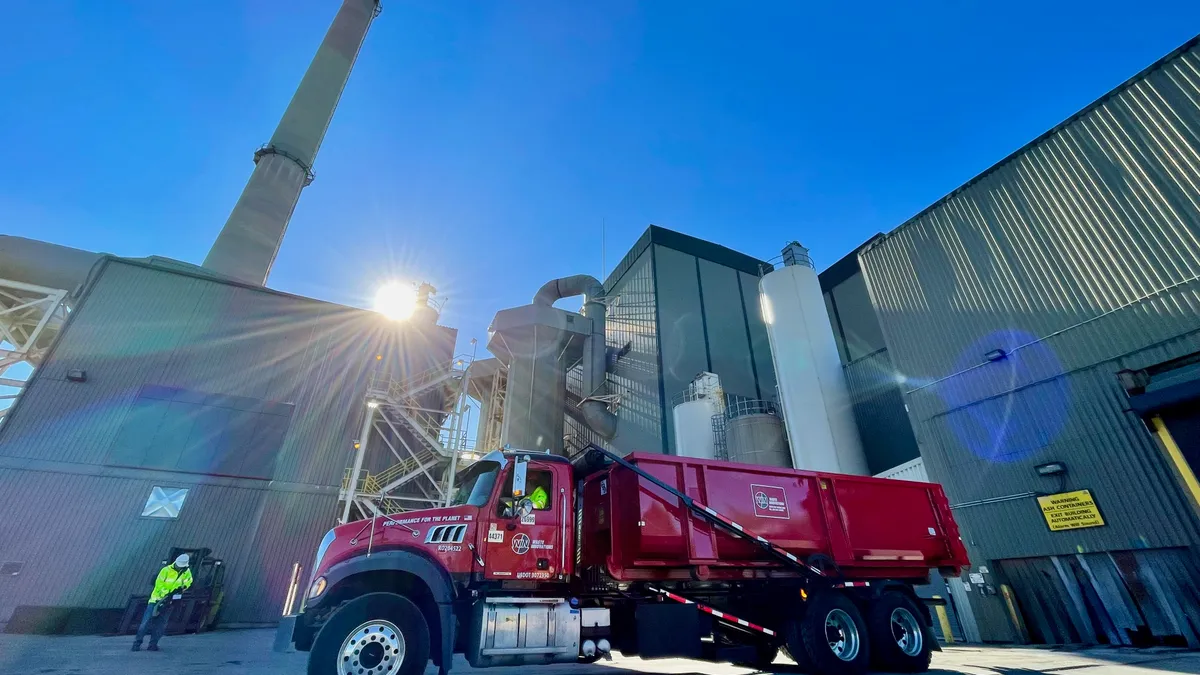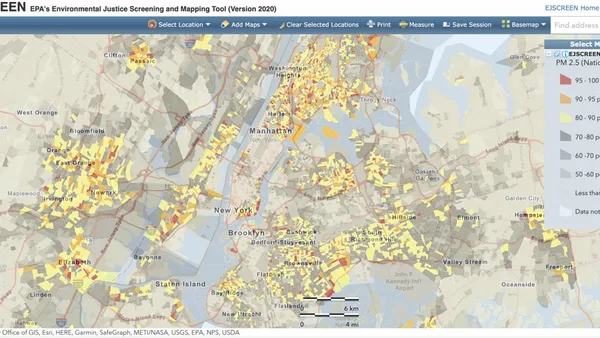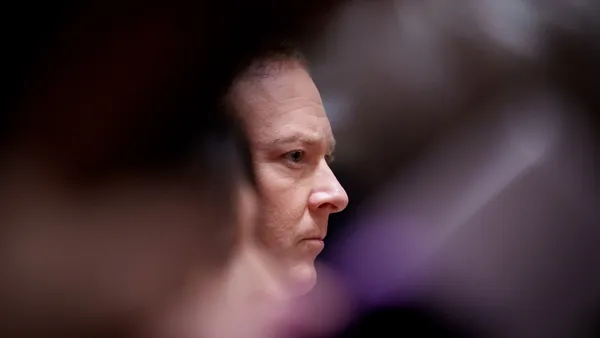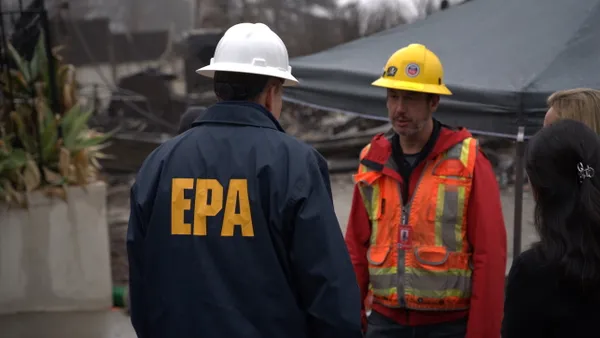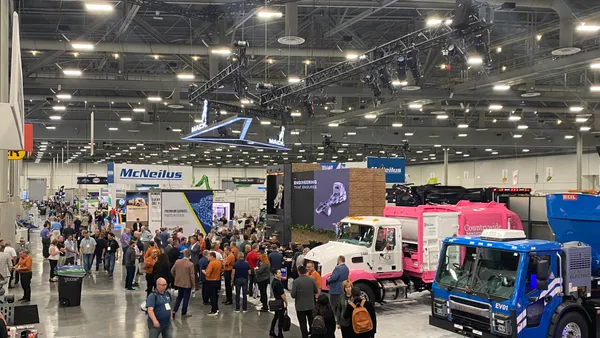Dive Brief:
- WIN Waste Innovations released its first sustainability report Monday, highlighting the 6.4 million tons of waste it processed through combustion facilities as well as expanding material recovery capabilities. The company reported handling 11 million tons of waste overall from 109,000 customers in 2022.
- WIN's report includes new details about its materials recovery rate in 2022, with roughly 354,000 tons of paper, plastic and metals recycled at its two MRFs and 133,000 tons of metal recovered from ash.
- The company also reported generating 3.3 million megawatt-hours of energy from its facilities. The report said every ton of waste it processed at those facilities avoided up to 2.1 tons of carbon dioxide-equivalent emissions by recovering energy instead of allowing the waste to emit methane and other gases in landfills.
Dive Insight:
The New Hampshire-based company, which debuted in 2021 following the merger of Wheelabrator Technologies, Tunnel Hill Partners and other companies under a division of private equity firm Macquarie, is looking to tout its ESG bona fides as many of its public and private competitors release their own reports.
Allia Saydjari, WIN's senior director of sustainability, said the company’s first report has been in the works for several years. "It takes a lot of tracking and visibility into the business to be able to put together a comprehensive review of your sustainability strategy," she said.
Saydjari declined to disclose specific targets the vertically-integrated waste company has for sustainability, but she said it was tracking Scope 1 and 2 greenhouse gas emissions in addition to its publicly-released metrics. She said WIN may disclose public targets in future reports.
"We're still a very young company,” Saydjari said. “As we mature and grow in that reporting and build out more infrastructure, we'll be in a place where we can look to include that in the future.”
On transportation, often a key source of Scope 1 emissions, WIN is leveraging its industry-largest rail transfer portfolio, a mode of transportation that typically produces fewer emissions than road and waterborne freight. Saydjari said the company is also open to opportunities to run zero-emission vehicles.
WIN is also making investments to improve the sustainability of its existing waste facilities. The company touted $100 million that it has invested in sulfur removal technology at its Ohio landfills over the last two years, which CEO Bob Boucher previously acknowledged was partially in response to community concerns over how the assets were managed under prior ownership.
WIN has also spent $48 million on air pollution controls and water consumption upgrades at its "renewable facilities," including upgrades at its Baltimore plant to address new emissions control requirements.
Saydjari said she sees continued opportunity for investment in materials recovery, particularly in metals that come from ash. The company is partnering with the University of Florida to explore the use of non-volatile ash as a road base. It’s also investing $80 million in infrastructure to enable gas-to-energy conversion, per the report.
"We have a really strong focus on recovering as many renewable attributes from the waste stream as possible, whether it's the recycling operations at our MRFs where we can sort materials and put them back into the manufacturing lifecycle, or whether it's the renewable energy creation and landfill diversion of some of those post-recycled waste streams as well," Saydjari said.
The report also mentioned that WIN has had a diversity, equity and inclusion council for multiple years and follows a roadmap to improve its efforts in that area. Saydjari mentioned the importance of safety to the company, which reported a total recordable incident rate of 1.99 in 2022, 13% below the previous year and below the level of larger industry peers.
WIN said it also recently received "high marks" from the Global ESG Benchmark for Real Assets, a common environmental certification for infrastructure. The standard has previously been a first step for ESG reporting at other Macquarie-owned companies like GreenWaste and LRS. Saydjari said she "hopes to achieve" additional third-party certifications as well in the coming years and may pursue a Task Force on Climate-related Financial Disclosures or SASB report.



